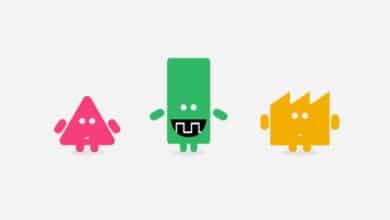
Mia Khalifa, a name that has become synonymous with internet fame, has recently stirred up social media once again, but this time not through her previous work in the adult film industry. Instead, her name is making waves through a “Mia Khalifa song” that has taken the internet by storm. This article delves into the world of the Mia Khalifa song, exploring its origins, cultural impact, and why it resonates with so many people today.
Table Of Content
- What is the Mia Khalifa Song?
- The Origins of the Mia Khalifa Song
- Why the Mia Khalifa Song Resonates
- The Power of Memes and Viral Content
- The Role of Social Media in the Popularity of the Mia Khalifa Song
- Understanding the Controversy
- How the Mia Khalifa Song Reflects Changing Social Norms
- The Future of Songs Inspired by Internet Celebrities
- Final Thoughts Of Mia Khalifa Song
What is the Mia Khalifa Song?
The Mia Khalifa song refers to a viral track that uses the former adult film star’s name as its central theme. The song, which became a viral sensation across platforms like TikTok, YouTube, and Instagram, blends humor, pop culture references, and catchy beats, drawing listeners in with its infectious rhythm and bold lyrics. Artists often use famous names to spark curiosity, but Mia Khalifa’s association with controversy and internet fame made her the perfect subject for such a song.
Though not the first track to reference Khalifa, this particular Mia Khalifa song gained significant traction due to its modern beats and the way it captured the internet’s fascination with her. It highlights how a meme-driven culture can influence music trends, particularly among younger generations.
The Origins of the Mia Khalifa Song
The Mia Khalifa song made its debut in 2020, a time when music was heavily influenced by viral internet content. Its creation was motivated by the increasing number of memes and social media posts that referenced Mia Khalifa, often poking fun at her past career. As with many viral songs, the lyrics of the track are playful and lighthearted, making it both a commentary on internet fame and a catchy tune that’s easy to dance to.
Interestingly, the song’s creators didn’t set out to glamorize Mia Khalifa’s controversial career but rather focused on how her name had become a cultural symbol. The Mia Khalifa song thus acts as a reflection of how internet culture and celebrity status are intertwined in today’s society.
Why the Mia Khalifa Song Resonates?
There’s no denying that the Mia Khalifa song gained popularity because of its connection to a person who has been an internet sensation for years. Mia Khalifa became a viral figure long before the song’s release, thanks to her controversial work in the adult film industry and her active engagement on social media platforms. She has successfully built a brand around her name, using her platform to speak out on issues like online harassment, women’s rights, and reclaiming her narrative.
The Mia Khalifa song taps into this complex relationship between Khalifa’s public persona and the internet’s fascination with her. In many ways, it highlights the contrast between the way she is perceived and the person she has become since leaving the adult industry. For fans, the song serves as both a tribute to her influence on pop culture and a reminder of how internet fame can create both a platform and a source of controversy.
The Power of Memes and Viral Content
One of the key reasons the Mia Khalifa song became so popular is due to the pervasive influence of memes and viral content. Khalifa herself has spoken extensively about the way she has been shaped by the meme culture surrounding her name. This song takes advantage of that same viral nature, leveraging the power of humor and internet culture to draw in listeners.
Memes and viral content are, in many ways, the driving forces behind modern music trends. As social media platforms continue to shape the way people consume music, artists have realized the importance of tapping into internet culture. The Mia Khalifa song stands as a prime example of how this new wave of internet-driven music is capturing attention and resonating with a younger audience.
The Role of Social Media in the Popularity of the Mia Khalifa Song
Another reason for the song’s success is the role social media has played in promoting it. Platforms like Tik Tok, Instagram, and Twitter have become vital tools for artists to spread their work. The Mia Khalifa song saw its rise through these platforms, where users shared the track, used it in their videos, and even created memes inspired by the lyrics. The song became part of a larger trend where internet culture and music collided, creating a dynamic and interactive experience for users.
The viral nature of the song speaks to the power of social media in shaping the trajectory of songs in the modern age. In a time when traditional methods of promotion are becoming less effective, internet-based virality has emerged as a game-changer for new music. For the Mia Khalifa song, social media was the perfect vehicle to launch it into the cultural mainstream.

Understanding the Controversy
While many enjoy the Mia Khalifa songs, it’s important to acknowledge the controversies surrounding Mia Khalifa’s name. For years, Khalifa has been the subject of criticism, primarily due to her brief but highly publicized career in the adult film industry. She left the industry in 2015, but her legacy continues to haunt her as she fights for the right to reclaim her image.
The song’s playful take on her name may seem like a lighthearted joke to many, but it also raises important questions about how society handles fame, especially when it comes to women in industries that are often stigmatized. The Mia Khalifa songs serves as a commentary on the way internet fame works, where public perception can be manipulated, and how an individual’s name can be used for entertainment value without their consent.
How the Mia Khalifa Song Reflects Changing Social Norms
The Mia Khalifa songs is more than just a catchy tune-it reflects the changing social norms of our time. However, with the rise of the internet, these figures can now reinvent themselves, reclaim their narratives, and build an entirely new identity.
Mia Khalifa’s story is one of resilience, as she has used her platform to speak out against the harassment she faced during her time in the adult film industry. She has become an advocate for women’s rights and uses her influence to challenge societal expectations and norms. The Mia Khalifa songs captures this transition from a controversial figure to a powerful voice in the world of internet activism.
Read more: Wynk Music Mod APK
The Future of Songs Inspired by Internet Celebrities
The success of the Mia Khalifa songs suggests that this trend of creating music inspired by internet celebrities will only grow. These songs will continue to blur the lines between music, humor, and social commentary, creating a new wave of internet-inspired entertainment.
However, it’s important to remember that with this type of content comes responsibility. As fans and creators engage with internet celebrities like Mia Khalifa, it’s essential to consider the impact that using someone’s name for entertainment can have on their personal and professional lives. The Mia Khalifa songs is an example of how viral music can both entertain and challenge cultural norms, but it also offers an opportunity to reflect on how we treat public figures in the digital age.
Final Thoughts Of Mia Khalifa Song
The Mia Khalifa songs is more than just a viral trend-it’s a cultural phenomenon that reflects the intersection of music, internet culture, and celebrity. By referencing Mia Khalifa, the songs taps into the ongoing conversation about fame, gender, and the power of social media. It serves as a testament to the influence of viral content and memes in the modern music industry while also sparking conversations about how we perceive internet celebrities.
As we continue to see the impact of internet-driven culture on music, the Mia Khalifa songs is just one example of how the internet has reshaped the entertainment landscape. Whether you love it or hate it, the song is undeniable proof that internet culture is here to stay, and it’s having a lasting effect on how we create and consume music in the digital age.



